wrestling / Columns
The Magnificent Seven: The 7 Lessons to Take Away from The Steve Austin Show
Over the past couple years, I’ve fallen in love with the world of podcasting. Historically, I never cared for talk radio—it bored me, and certain NPR sound bites had a Pavlovian effect of making me nauseous for the recollection of marathon road trips in my father’s Oldsmobile growing up, bored and car sick in the back seat. Maybe I was never exposed to the right radio personalities earlier in life, or maybe I’ve just gotten old, but nowadays, there are few things I enjoy more than killing the commute to work or a stretch of one of my road trips by listening to a good podcast. And one of my favorite programs is The Steve Austin Show.
Austin’s podcast airs twice per week. I don’t listen to every episode, but I’ve made a go at staying up to date, and catching up when life gets busy and I miss a long string of shows. After my latest round of binge-listening, I got to thinking about what I’ve learned from Austin’s podcast, and so I give you seven lessons to take away from The Steve Austin Show.
Warning: for folks who are not caught up on the podcast and who intend to, this countdown does include some spoilers.
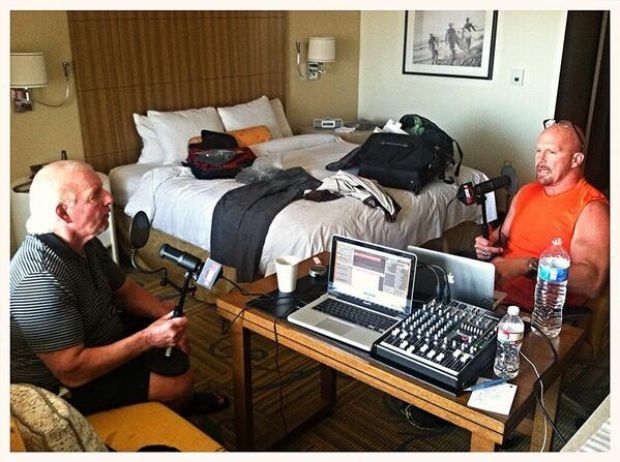
#7. The Crippled Goose Factor
One of the long standing inside jokes of the The Steve Austin Show is references to the CGF, or Crippled Goose Factor. To be blunt, it’s a reference to how badly a food is going to give you the “drizzling shits.” Yes, it’s vulgar. I would argue, however, that it’s not as juvenile as it might seem. Austin rarely brings up defecation or other taboo topics for sheer shock value or to play it cool, but rather seems to have struck upon one of the core elements of being an effective podcast personality—being human, and recognizing that more often than not, the best we can do is laugh about our most human traits, shortcomings, and bodily functions.
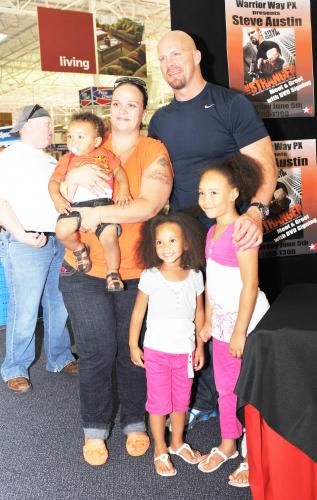
#6. Unleashed vs. Family Friendly
Austin releases two versions of his podcast each week, featuring distinctive interviews and commentary—the standard show and Unleashed. The standard show is family friendly, with minimal cussing or adult imagery. For the Unleashed episodes, nothing is off limits. When I first heard of this gimmick, I thought it was silly and unnecessarily complicated for having two separate subscriptions to follow the show. The core of this model is sound though—to have episodes that grown ups can share with their kids or with the old folks to share some wrestling history without offending sensibilities, while also having episodes in which Austin can be his most natural self and speak his mind without a filter.
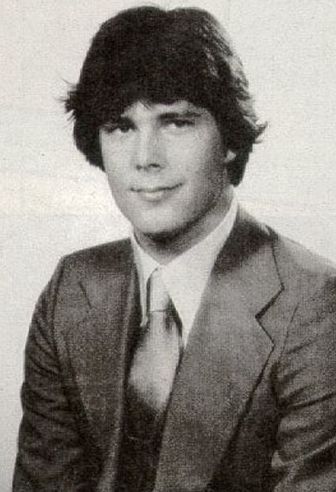
#5. Origin Stories
One of the hidden gems of The Steve Austin Show is Austin asking guests—and particularly those from the world of wrestling—where they came from and how they got started in their line of work. Whether it’s recounting stories of Kevin Nash getting busted for walking across his college quad smoking a joint, or Vader recounting a harrowing story of how his father responded to a break in at his childhood home, or high school Daniel Bryan sending off money to be trained by Dean Malenko only for Malenko’s wrestling school to close down, the stories are fascinating and put a decidedly human face on so many larger than life personalities.
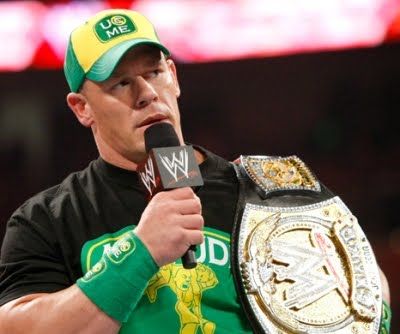
#4. Commitment
The guests Austin has featured on his show more often than not demonstrate that one of the keys to their success has been commitment and hearing those stories can be a pretty mind-blowing peek into what the guys who have “made it” are really all about. Yes, we’ve heard Kevin Nash, Scott Hall, and Sean Waltman recount how The Clique was all business all the time and couldn’t stop talking about wrestling. Even more interesting to me, though, was hearing John Cena talk about how he’s been spending his spare time learning Mandarin—the reason being that China represents a major market for potential growth for WWE, and he wants to be an ambassador. That instant crystalized for me exactly why John Cena is the top man in the business, and has been for nearly a decade now—complete commitment to his company and his craft.
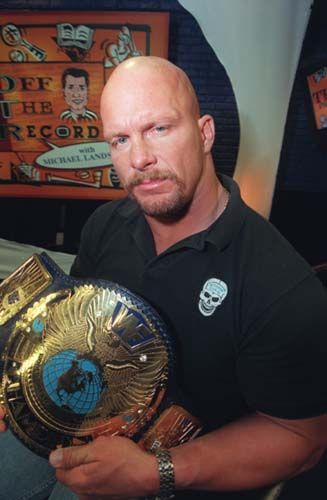
#3. Speaking from Credibility
While I get the impression that the Steve Austin we hear on the podcast is about the most diplomatic version of the Texas Rattlesnake you’re ever likely to hear, the man is nonetheless irrepressibly opinionated—giving his thoughts on all things wrestling from the greatest matches and superstars of all time, to the current state of the wrestling product everywhere from WWE to the indies. The best thing about it is that you can’t help but listen to what Austin has to say. I may not agree with his every insight, but Austin has a record of wrestling box office success, combined with the credibility of a legitimately great in-ring performer to mean that no one can claim he’s offering an unqualified opinion on wrestling, and it’s a treat to hear a man with those credentials speak his mind.
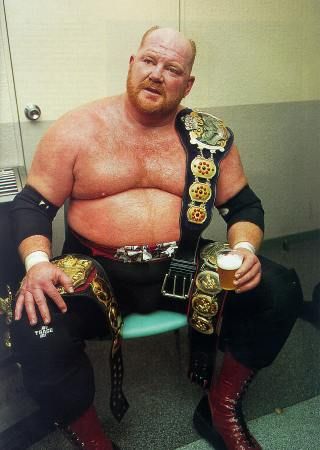
#2. Wrestling from Other Cultures
Austin has managed to pull in a wide range of guests from different eras of wrestling, and who have wrestled in different settings—both geographically and from business-culture perspective. One of my favorite interviews to date featured Vader, and it blew my mind to hear him discussing his experiences early in his career wrestling in Germany (where wrestlers could be fined for fouls—thus the heel would cheat behind the ref’s back and get away with it, the face would retaliate and get caught and fined, wealthy audience members would pay the face’s fine for him, and then the heel and face would split the profits of the “fine” between them backstage) or Japan (where angry fans, seated on pillows, set their pillows on fire and threw them in the ring).While wrestling has similar rules and a similar appeal worldwide, the differences can be pretty amazing, too.
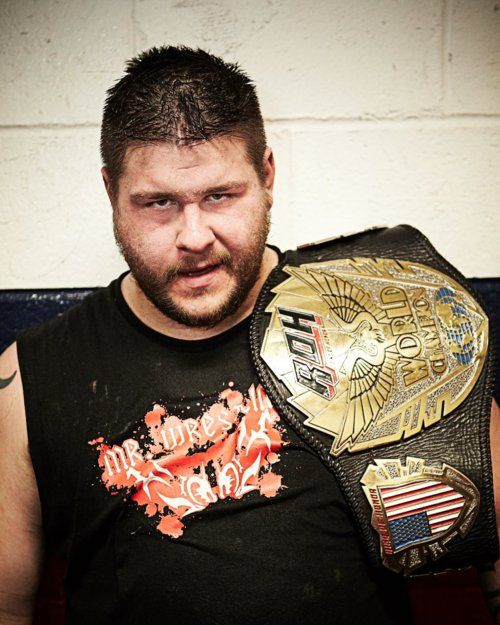
#1. Put Over Others
As I mentioned earlier, Steve Austin is a big enough star and polished enough performer that he has earned the right to say what he likes, when he likes. Better yet for the show, Austin makes a habit of using his clout to put other guys over. Sure, Austin has interviewed other iconic stars like Roddy Piper, Dusty Rhodes, and Ric Flair, and those episodes have been great. But it has also been pretty fantastic to hear his conversations with lesser stars like Hurricane Helms and Justin Credible, and even better yet up and comers and guys who haven’t made it to the WWE main roster like Kevin Steen, Samoa Joe, and Eric Young. Comparably awesome, Austin has had killer shows talking with folks like wrestling journalist Dave Meltzer, WWE house musician Jim Johnston, and championship belt maker Dave Millican—guys important to wrestling history that everyday fans may have never heard of. Folks flock to the show because Austin has his name on it, but Austin has done a wonderful job of giving the shine to lesser known guys who deserve credit.
What’s your favorite episode of The Steve Austin Show? Or your favorite wrestling-centric podcast? Let us know in the comments section. See you in seven.
Read stories and miscellaneous criticism from Mike Chin at his website and his thoughts on a cappella music at The A Cappella Blog. Follow him on Twitter @miketchin.







